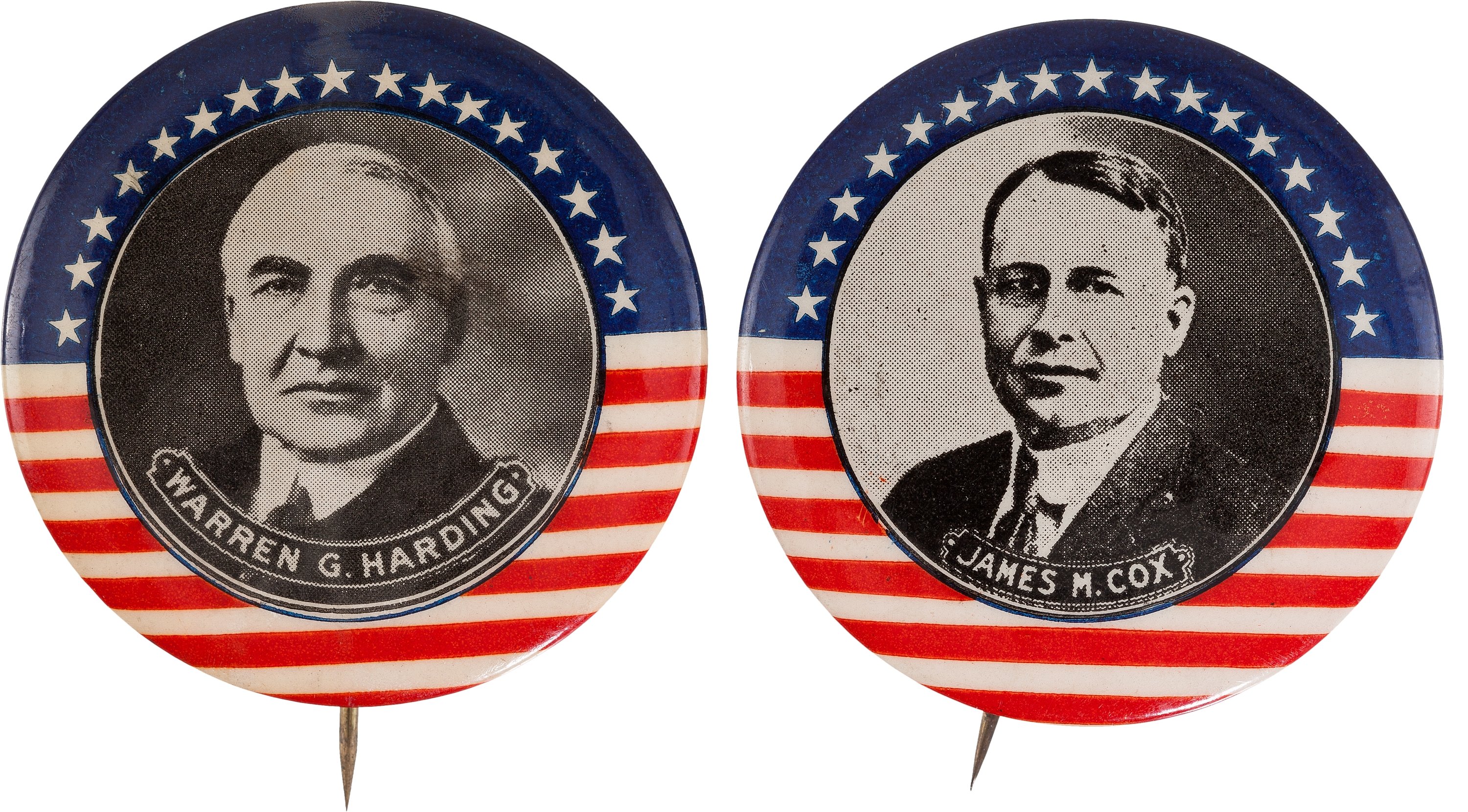
By Jim O’Neal
The Republicans returned to power in the election of 1920 with the victory of Warren G. Harding of Ohio. Isolated even further in the confines of the White House, Woodrow Wilson and family waited out the year and the first two months of 1921. The outgoing president’s condition had stopped improving. He was feeble and mostly occupied with his books and papers, though he now lacked the mental acuity that was key to his greatness.
Late in his term, Wilson was awarded the Nobel Peace Prize and his spirits rose. Remorse yielded to genuine gratification, an indulgence he rarely allowed himself even in the good times. However, Edith Wilson found little diversion from this almost oppressive situation. The world was slowly passing the Wilsons by without a second glance.
The 1920 campaign had been dull and lackluster, with Harding remaining in Ohio on his front porch, greeting thousands of well-wishers and speaking to them informally. The Democrats had tried to make the League of Nations a campaign issue, but Harding’s position was too obscure since he was really only interested in preserving the Senate’s constitutional rights regarding foreign treaties. When voters got to the polls, politicians discovered the campaigns had not mattered. The people were so tired of government restrictions and hardships imposed by the war that they sought a complete change in administrations and a return to “America First.”
Harding and running mate Calvin Coolidge drubbed James Cox and Franklin D. Roosevelt in both the popular vote and electoral college (404 to 127).
Between the election and inauguration, Harding chose his cabinet, carefully balancing the membership with close political friends and leaders in the Republican Party. It was a blue-chip group that included Charles Evans Hughes (former governor of New York, Supreme Court Justice and presidential candidate in 1916) as Secretary of State; Secretary of Commerce Herbert Hoover; and millionaire Pittsburg banker Andrew Mellon as Secretary of Treasury. But there were also a few friends, like Albert Fall (Interior) and Harry Daugherty (Attorney General), who would become infamous for corruption.
Friends of Harding and Daugherty flocked from Ohio to Washington for jobs. Headquarters for the “Ohio Gang” was the “Little Green House” on K Street, where government favors and appointments were bought and sold. Evidence of Harding’s knowledge is sketchy; his friends just assumed he would agree in order to please them. But late in 1922, Harding learned of irregularities at the Veterans’ Bureau, where huge amounts of surplus materials were sold far below market value and in turn new supplies were purchased far above fair value, all without competitive bidding.
The head of the agency, Charles R. Forbes – one of Harding’s poker buddies – was allowed to resign, but the attorney for the Bureau committed suicide. This was soon followed by the death of another close Harding friend, Jess Smith, who shared an apartment with Daugherty and was a member of the “Ohio Gang.” Sensing trouble, Harding had asked him to leave Washington, however Smith shot himself to death. But the biggest surprise surfaced after Harding died of a heart attack in San Francisco in August 1923.
Secretary of Interior Fall had allowed two large federal oil fields in Elk Hills, Calif., and Teapot Dome, Wyo., to be opened to private oil companies. He was convicted of bribery ($400,000) and sent to prison. Attorney General Daugherty was brought to trial in 1924 for conspiracy in much of this, but refused to testify to avoid “incriminating the dead president” and it hung the jury.
How much Harding actually knew about the corruption among his friends will never be known. After his death, Mrs. Harding burned all his papers and correspondence, diligently recovering and destroying even personal letters in the possession of other people. Since she had also refused to have Harding’s corpse autopsied in San Francisco, there have always been rumors he was actually poisoned.
Ah, Washington, D.C. – such a small city, but with so many untold mysteries.
 Intelligent Collector blogger JIM O’NEAL is an avid collector and history buff. He is President and CEO of Frito-Lay International [retired] and earlier served as Chairman and CEO of PepsiCo Restaurants International [KFC Pizza Hut and Taco Bell].
Intelligent Collector blogger JIM O’NEAL is an avid collector and history buff. He is President and CEO of Frito-Lay International [retired] and earlier served as Chairman and CEO of PepsiCo Restaurants International [KFC Pizza Hut and Taco Bell].
